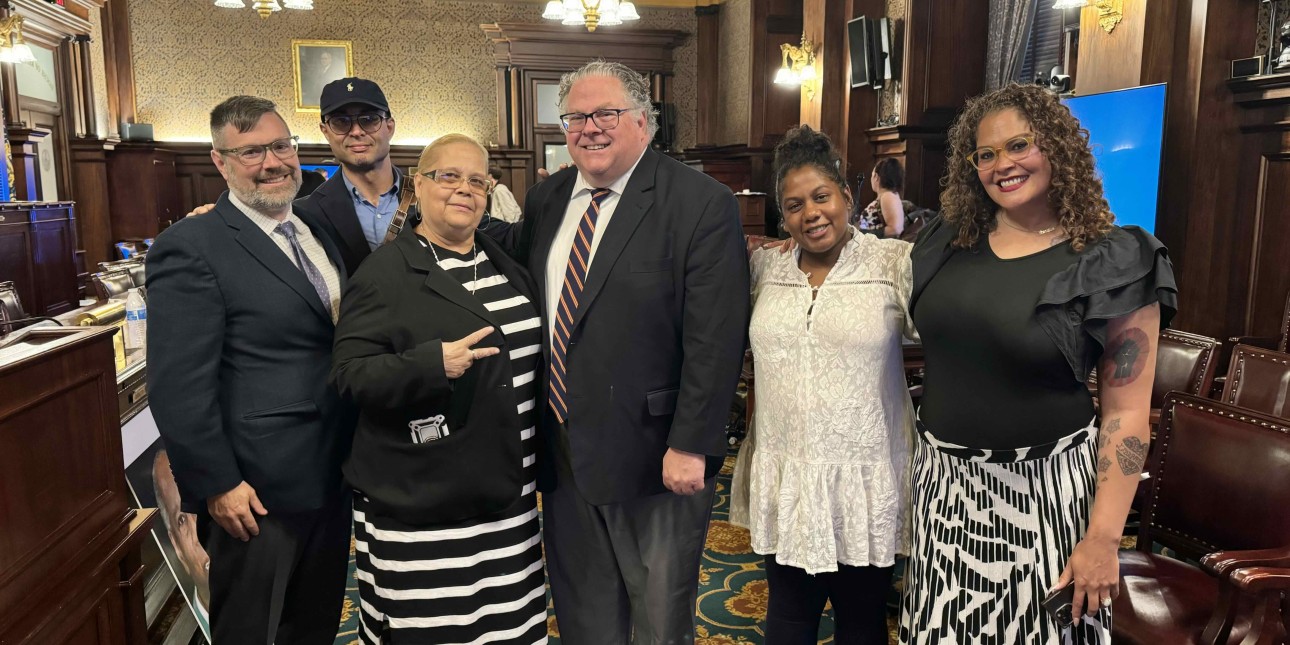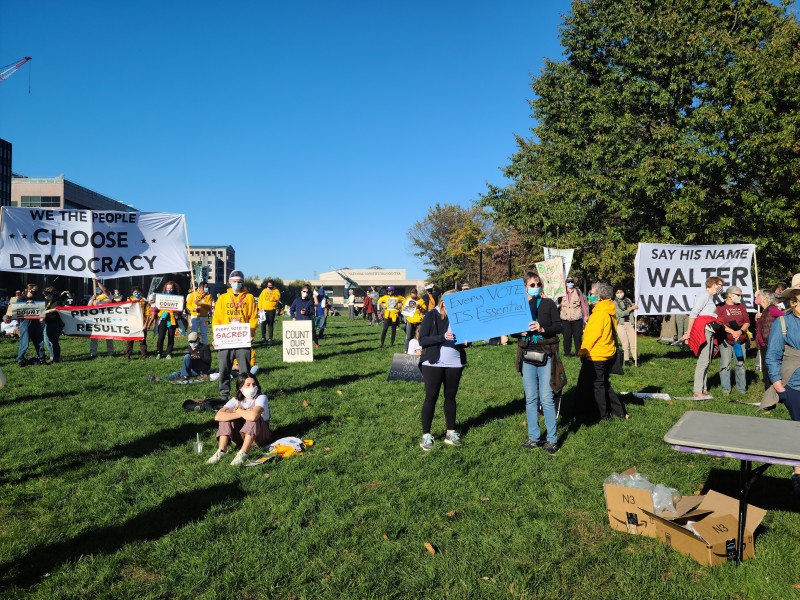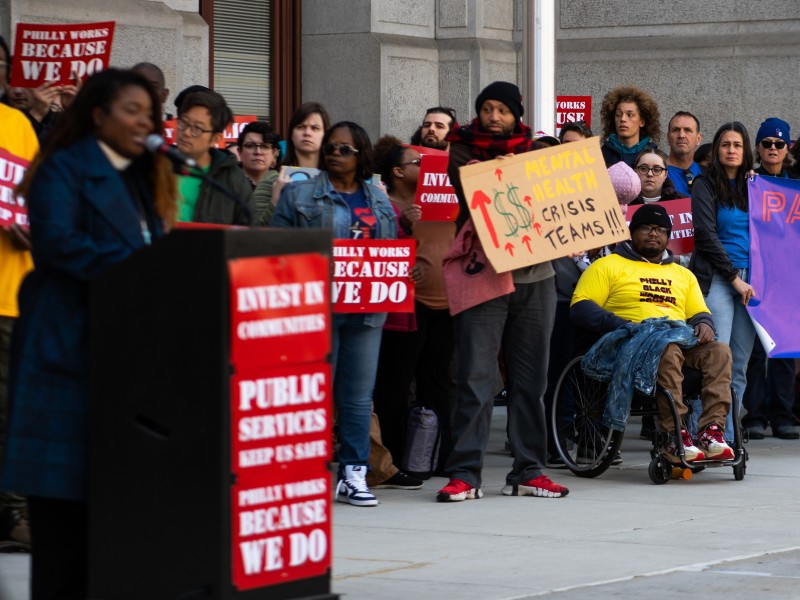House Judiciary Committee Holds Vital Hearing on Felony Murder Reform

On Thursday, May 30th the House Judiciary Committee held a hearing on HB 2296 a piece of historic and urgent legislation introduced by House Judiciary Committee Chair Representative Tim Briggs. HB 2296 will create parole eligibility for people sentenced to second-degree murder, also known as felony murder, which means they didn’t commit––or intend to commit––murder. What they did was commit a felony where someone was unintentionally killed. This could mean they were the getaway driver for a robbery that went wrong, or part of a robbery where they assaulted someone and unintentionally killed them. It could also mean they robbed a person who had a heart attack shortly after.
Pennsylvania has sentenced over 5,000 people to die in prison––with no possibility of parole. We have the second largest amount of people serving such sentences of any state in the country. 70% of those convicted to Life Without Parole in PA are Black and 80% were under 30 when they were convicted. So many have been incarcerated for so long that we're rapidly approaching a majority LWOP population that is now geriatric. Within this context 1,100 of those people were sentenced to die in PA prisons due to the felony murder rule.
The hearing featured national experts. Pennsylvania-based advocates, impacted family members and the Pennsylvania DAs Association. Watch the hearing below (note due to some technical difficulties the first testifier cannot be heard on this video as such we have set the clip to start after them)
In the opening testimony of the hearing Ashley Nellis, Director of Research of The Sentencing Project, pointed out that “Pennsylvania is an outlier. It is one of only two states that requires life without parole for both first and second degree murder.” She also pointed out that retroactive application of any reform is key.
HB 2296 would create retroactive parole eligibility after 25 years for old cases. For new cases going forward it would create a maximum 50 year sentence with parole eligibility after 25 years. See the grid below (provided by our colleagues at Straight Ahead) to understand how HB 2296 would change the law.
During the hearing our very own Lorraine Haw, also known as Mrs Dee Dee, testified as someone who had lost a brother to gun violence and also has a son sentenced to death by incarceration under the felony murder rule. Mrs Dee Dee was the subject of No Way Home, a documentary film produced by Amistad Law Project. She expounded on what it means to have a son incarcerated for his entire adult life and how she holds the complexity of also having list a brother to gun violence.
We also heard from two victims family members during the hearing that opposed a reform to Pennsylvania’s sentencing for felony murder. While we deeply sympathize with their pain and loss and are glad their voices were heard, we believe that death by incarceration creates another set of victims. A sentence that allows people to turn around their lives is needed. Additionally, the Pennsylvania District Attorney’s Association voiced concerns around retroactivity and advocated that any reform that happens contain the option of a life sentence.
The hearing was closed out powerfully by our colleagues Celeste Trusty from FAMM and Roxanne Horrell of Straight Ahead who made legible the human cost of sentencing people to die in prison for felony murder convictions. Celeste Trusty brought posters of Ezra Bozeman, a quadriplegic man who we represented in compassionate release proceedings along with Abolitionist Law Center, so his presence could be represented in the capitol. Ezra passed only 12 days after he had won his freedom through compassionate release and after 49 years of incarceration.
While this bill has been introduced we also have an active PA Supreme Court case challenging the constitutionality of life without parole for felony murder that will be heard likely later this year. Governor Josh Shapiro also entered an amicus brief in that case agreeing with the argument that a mandatory life without parole sentence for felony murder. There is a growing momentum to end this disproportionate and unjust sentence in Pennsylvania and to reunite families such of Mrs Dee Dee’s who have been torn apart by decades of incarceration.
Proposed Changes in HB2296 |
Existing Law |
Adult (18+) sentencing Maximize sentencing for 2nd degree murder is 50 years ● Courts have to power to consider individual circumstances and determine a sentence, not to exceed the maximum Juvenile sentencing No more than 40 years for individuals age 15-17 No more than 30 years for individuals under age 15 Parole power Parole opportunities granted to those serving life imprisonment for 2nd degree murder
| Adult (18+) sentencing Mandatory sentencing for 2nd degree murder is life imprisonment ● Courts have no power to consider individual circumstances or determine a sentence Juvenile sentencing Sentencing statute allows for 30 years to life for individuals age 15-17 Sentencing statute allows for 20 years to life for individuals under age 15 Parole power Parole opportunities granted to those serving life imprisonment for 2nd degree murder
|


